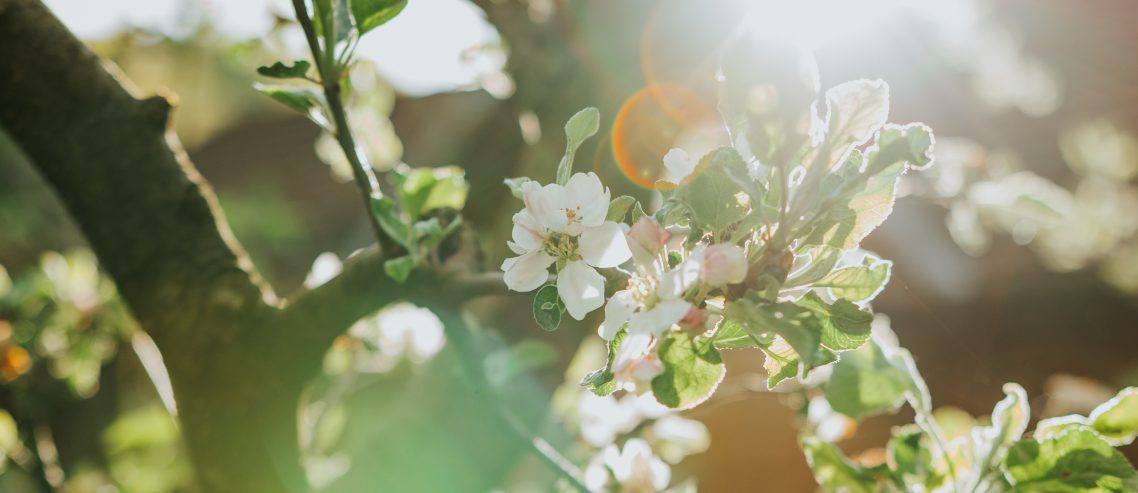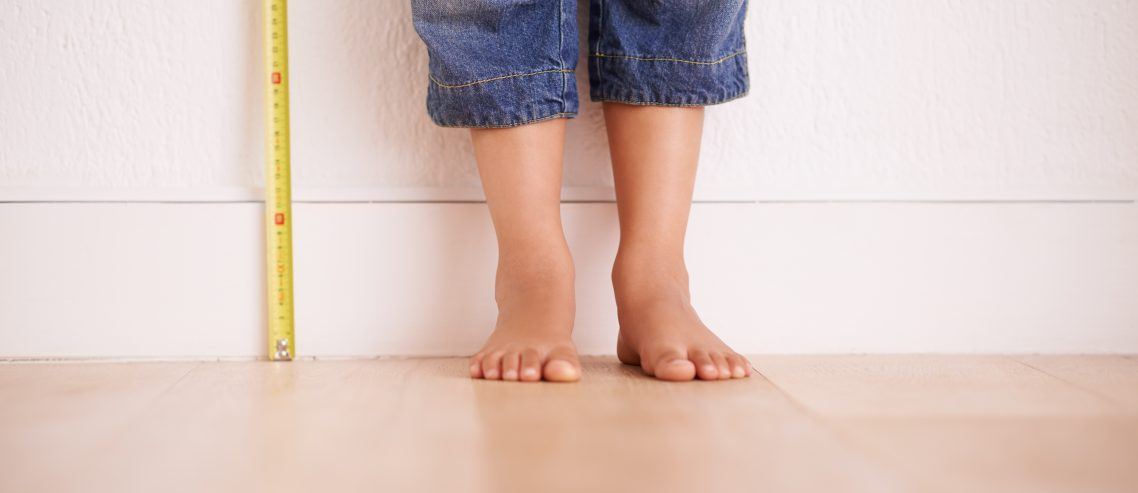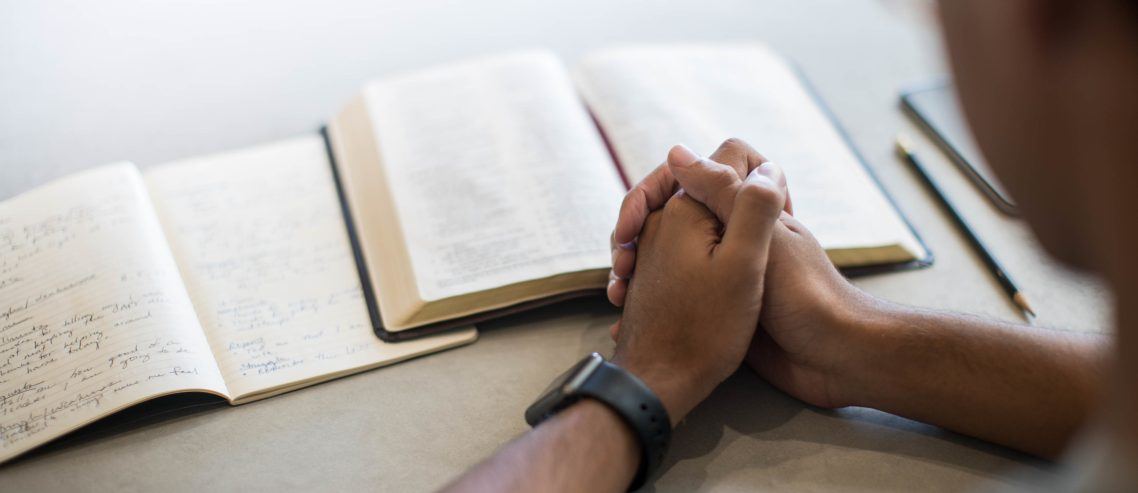Patience Podcast
A Requirement for Life
Life is full of unpleasantness. With the unpleasantness we can’t change, we will need to endure through it. The skill of enduring this unpleasantness is patience. It is no wonder that patience is exhorted in Scripture. In this episode of Breaking Bread, Kathy Knochel highlights this fruit of the Spirit and gives us some keys on how to be more patient.
Show notes:
- Patience is being emotionally regulated while at the same time enduring unpleasantness.
- Patience is not necessarily marked by deactivation and calmness. Rather, it is actively engaging our emotional realities during these times of unpleasantness.
- Very often, our unhealthy emotional reactions to unpleasantness have less to do with the irritant we chafe against and more to do with our internal world.
- For example, a father may lose patience with his young son not because the son was disobedient but rather the father feels that the disobedience confirms that he is a bad father. The lack of patience with his son comes from internal unpleasantness.
- Patience burns the fuel of hope. People who are patient can find hope beyond their unpleasant circumstances. It is this hope, realized by faith that puts Christians at the advantage, for living patient lives.
Transcript:
There’s a quote that I read that says, patience is not about the wait, patience is about what you do in the waiting. Welcome everyone to Breaking Bread, the podcast brought to you by Apostolic Christian Counseling and Family Services. Excellent to have you along. Kathy Knochel is with me. Hi Matt.
Great to have you here, Kathy, our topic today is patience. Yes. One of these terms that we grow up very early knowing, be patient. And we hear that. And then we go to the Scriptures, and we see, my, there’s a lot there as well. It’s the fruit of the Spirit. One of the fruit of the Spirit is patience. And, and we see it in James 1, for example, count it all joy when you fall into divers temptations, that the trying of your faith worketh patience. And then it says that patience has this important work in our life. And that is to bring us to maturity. Yes. You are in the work of helping people mature, helping people work through things. Right. And I would have to believe you see this patience play out in real time and you see the effect it has on people as that verse indicates a maturity.
So, we’d love to pick your brain. Yeah, absolutely. What does it feel like? And all of that. So, you know, I just have to say, I think that when you first hear the word patience, it almost makes you cringe a little bit because you quickly can think back over the last week or so of all the times of like, oh, I probably blew that.
I could have been a little bit more patient. So, I think just the word itself can be kind of guilt inducing. Yes. That’s a good way of saying it. Yes. Yeah. It really is. And I would like to take some of that out, belaying everybody with the guilt of you ought to be more patient isn’t what we want to do here.
Right. What do we want to do then? You know, I would say that I think some of the important pieces would be better understanding, like, what is patience? And I think just having a better understanding of what it is and what blocks it and how to better get to a state of patience in multiple situations will be helpful just in getting rid of that guilt feeling that you talked about.
Well, I like that. And so, let’s start right off with what is patience? And I think we all know that word. But I think in peeling back the layers, I think it’s helpful. So, take a stab at it. So, if you look up what the definition of patience is, the definition is the ability to accept or tolerate delay, trouble, or suffering without getting angry or upset.
And I would just add in there, like without having emotional dysregulation. Okay. Yeah. All right. I really like that. And so, you very much see this in the work that you do, right? Because most people are coming to you with some sort of unpleasantness, right? I don’t know if you take appointments for people who just want to celebrate, but I’m guessing most of it comes around some sort of crisis, right?
And that crisis is unpleasantness. And that unpleasantness is going to require some working through, some acceptance at some level, but some patience to plod through it. Yes, absolutely. And I think if you just think about, so if we use counseling, just as an example, the very act of counseling itself requires a lot of patience because there is no quick fix to managing these struggles that people are faced with or regulating emotions.
And so just the art of counseling is something that requires this ability to just be patient or just endure through until things start to change. Help us see a little bit what role patience plays in our emotional control and emotional regulation. Yeah. If you think about just whatever the situation is that you’re in the middle of, what we as people want to do is we want to do the opposite of this patience piece and we want to take control of it. So, we want to find a quick fix for it. We want to know the best method of just getting through it. We want to get out from underneath the unpleasantness.
Yes. And then actually what happens is how I label that is we actually engage in a struggle with it. And so, the more that you engage with it in the struggle, actually the bigger the situation can be. So, this patience piece or being able to just move through the situation with it, kind of accepting the situation for what it is.
That patience is a really an important tool. Yes. And I think part of our initial reactions, and you talked about it being guilt inducing, I think part of our reaction to patience is like, oh yeah, that thing I should do. Yes. But what you’re saying is, oh yeah, that thing you can employ. Yes. This is a tool in a person’s toolbox whereby we use it to navigate this life and to remain in a healthy place.
Yeah. And you know, I think sometimes, so if I would think about what does it look like to be patient, I think about just if we go to the example of a mom with young kids at home, it’s so easy to be at the end of your day and think, wow. Like I just was not patient. I was not present. I felt like I was always saying stop or no, and I think it’s easy to wake up the next day and say, today is the day I’m going to choose to be patient. And then that usually happens like through breakfast time when they’re demanding a different color cup for the third time. Yes. Yeah. And so, I think that if, when we start to just narrow down this, I need to be patient, which means I need to just let things happen as they are and I need to respond calmly and kindly always, we miss the importance of what patience actually is. So, if I think my only objective in this moment is to keep my cool, right? That’s not all of what patience promises and we can keep our cool but actually dodge patience.
Am I right? Yes. Okay Illustrate that space out. Help us understand that. So, this would be an example that comes to my mind here is, so in the example I used choosing calmness and just kindness, or what we would kind of put in quotes patience in this moment is it looks like we’re regulated, it looks like we’re managing it.
And sometimes what it actually is, it’s our frustration is building and then we just choose to react differently. And then as the day goes on, these continue to happen. And then we get pushed to our limits and then the major blow up happens.
So, patience doesn’t say ignore problems. Is that what I’m learning? Yes. So, patience calls us to a realism that I think would be very welcome, actually help us understand the realism of patience. Patience is not necessarily just the staying calm in the moment. I would say there’s a quote that I read that says, Patience is not about the wait. Patience is about what you do in the waiting. And so if we use that example, or for the person that is thinking that patience is just all about, if I can just remain calm, that person, I would challenge that person to really be thinking of, when the unpleasantness is coming, when the situations that tend to push you over the edge, so if that’s something going on with young kids, if it’s traffic, if it’s just those mundane things, it’s what are you doing in the moment to actually be regulate yourself, come back present, and what are you doing to be able to really put the frustration of it behind you?
We often think patience is inactivity. Everything within me is wanting to activate. Out my mouth. Yes. Out my hands, out my feet, everything’s wanting to activate. Yes. And so, we think we’re not supposed to activate and that’s patience. But you’re suggesting that patience is activation. Yes. Okay. What does that activation look like?
Some of getting really good at being patient or really developing this skill of patience is listening to the cues that are going on in your body. So, if your heart is starting to race fast or even if it’s things in your life that you did not leave enough time to get to work today, or that you’ve tried to plug way too much into your mornings and now your kids aren’t behaving well. Your kids are on a time schedule that they’re on and sometimes the lack of good planning on your end is what makes it feel like you’ve lost patience with them. And so, really it’s about being able to problem solve and know what are the things that I can do different in the future to help create a better environment for myself to be able to utilize the skill of patience well.
The outburst is really more about ourselves than it is about the situation. Yes. That’s what I’m learning from that. Yes. With the people I’m walking alongside of in counseling, I’m always pushing this, okay, what skills are you using to get yourself back regulated? And then be able to put the situation behind you so that you can keep going.
It can be helpful to just take this zoomed out approach and think about what are some of the things that I need to be meditating on implementing. Noticing just about the day in my daily life to be able to just have this more walking patience through the day, patience with myself, patience with the situation that’s happening, patience with the kids, that sort of thing.
It really requires, from what you’re saying, really requires a thoughtful approach, maybe more. A leading approach than approach that just responds to the situations that come, right? Yes, I agree with that a hundred percent, Matt, because if we are always responding to the situation that just happened, we’re not necessarily learning and growing.
You know, one of the other interesting things that I see, look at patience in the Scriptures, wherever it’s found, you’ll find some companion words with it. Hope is one of those companion words. Faith is one of those companion words. You get a sense that patience springs from faith and points towards hope.
And really that makes some sense to what you were saying about patience is forward looking. If there is no hope, then we very quickly melt down. And as I kind of analyze my own failings at patience, really hope is lost. The vision of that, right? Yes, I would agree with that. I think that in James it says, the trying of your faith worketh patience.
And so, if you think about that with some of the definition that we’ve talked about, these unpleasant situations can produce patience in us. And I think that when you’ve been through enough unpleasant situations, you will learn that is true. But this idea and mindset of patience is not something that we’re born with.
And so, it is something that has to be learned over time. So, while no one welcomes struggle or pain, there really can be a positive result of it as I can be patient because I know God is here. I know he has a plan. I know things are working out, which helps develop just this healthier mindset of patience.
I think if you think of people in your life that are patient, I picture people that are older, people that have just been through a lot in life, and they just are able to say, this is a season, this too shall pass, because they understand that God is there through all of those circumstances. So then have you tipped your hat a little bit to some of the purposes you have with a client who is going through unpleasantness, that your number one goal is not to make the unpleasantness go away?
Absolutely. But your number one goal is to what the goal that I tell people all the time is, it’s to be able to continue to walk forward in the face of struggle. There are times that situations come up and they are hard. Sometimes it’s just certain seasons above, parenting or college, but other times it’s some more chronic situations that are going on and there is no way to solve it or fix it fast.
And so, I think we have two choices and one choice is we can continue to struggle with it and be frustrated about it and just say the only way I’ll ever find happiness is if the situation goes away. Or we can notice that we have values and things that we can shift our attention to and focus on and just let that unpleasantness exist at the same time.
So, you are in the work of bringing about patience in people’s lives. And I’m so glad you mentioned the chronic situation because there’s a whole scale here of patience. We could say maybe small lowercase p patience, right? I get cut off in traffic and I’m annoyed to capital P patience, things that are chronic, things that are ongoing, maybe relationship brokenness that will not mend.
Yes. And so, we want to provide voice here to that whole spectrum and honor patience at every level, right? And I think it’s good to be in a place of if you’re the person that’s always judging your patience, it’s better to judge it from a perspective of how am I doing with these bigger things that are going on in my life and not the small, little, mundane, everyday situations that are happening.
Certainly, if every time we’re bumped a little bit, we’re exploding, there’s work to be done there. You probably have too much stress on your plate or you need to work on regulating yourself or just maybe taking account for like, where is my stress really coming from? But really, knowing you’re a patient person or not comes from looking at this life situations.
I like that. You know, Kathy, just having patience on my radar has made me more aware how necessary it is and how required it is just to get through life because wherever you find unpleasantness, you’ll find a place for patience. And as you have attested to, that is going to be a space for our growth.
And I think we know that at an intuitive level, right? The child in the grocery store line who’s on their back kicking and screaming because they can’t get the candy that I too kind of want. I’ve just learned how to not kick and scream, right? It is a marker of maturity, right? Which is what James says, right?
That by these trials, rejoice in them, he says, that they would bring about patience in us that would bring forth the fruit of maturity. Thanks for sharing your insights. Thanks, each one for being on. I trust and pray this has blessed you as well.






Comments
Leave a Comment